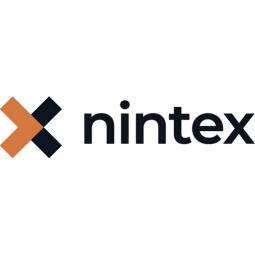下载PDF
Automating Data Entry for Non-Profit Scholarships: A Case Study
技术
- 分析与建模 - 机器人过程自动化 (RPA)
适用行业
- 金融与保险
挑战
Pay It Forward 奖学金是一家位于佐治亚州盖恩斯维尔的非营利组织,每年提供约 600 万美元,资助学生在全州私立学校的教育。该组织接收来自个人、家庭和企业的捐款,这些捐款随后成为为 K 至 12 年级儿童提供的奖学金。该组织还可以获得 5800 万美元的税收抵免,为捐赠的佐治亚州纳税人保留。然而,佐治亚州只给 Pay It Forward 24 小时的时间(每年 1 月 1 日)将数千名捐赠者的相关信息输入税务部 (DOR) 的在线门户。对于无法进入该系统的每个潜在接收者,非营利组织面临着失去税收减免的风险。这是一个繁琐、耗时的手动过程,需要大量资源才能完成。 Pay It Forward 通过 Nintex Foxtrot RPA 寻求更好的方法。
关于客户
Pay It Forward奖学金是一家位于佐治亚州盖恩斯维尔的非营利组织。该组织每年提供大约 600 万美元,用于资助全州私立学校学生的教育。该组织接受个人、家庭和企业的捐款,然后为 K 至 12 年级的儿童提供奖学金,其中 50% 来自低收入家庭。 Pay It Forward 还可以获得 5800 万美元的税收抵免,为捐赠的佐治亚州纳税人保留。该组织的运营利润率仅为 5%,其中大部分都花在了临时工上。
解决方案
Pay It Forward 输入捐赠者信息的过程本身并不复杂,而是乏味。全年收集每位捐助者的相关数据并将其存储在 Excel 电子表格中。为了确保这些捐赠者获得税收抵免,Pay It Forward 必须将每个捐赠者的姓名、地址、社会安全号码和其他数据一一输入佐治亚州 DOR 提供的在线表格中。这项工作包括为“Pay It Forward”的数千名捐赠者复制、粘贴、打字并提交一份表格。由于该州不寻常的规定规定 Pay It Forward 只能在 24 小时内输入所有这些信息,因此该非营利组织历来被迫雇用多达 30 名临时数据输入人员来帮助完成这项工作。该组织考虑了几种替代方案,以使这项艰巨的工作变得更加容易。该团队采用了 Nintex Foxtrot RPA,该软件最终将自动执行从捐赠者电子表格中提取数据并将其输入该州在线表格的过程。
运营影响
数量效益
相关案例.

Case Study
Real-time In-vehicle Monitoring
The telematic solution provides this vital premium-adjusting information. The solution also helps detect and deter vehicle or trailer theft – as soon as a theft occurs, monitoring personnel can alert the appropriate authorities, providing an exact location.“With more and more insurance companies and major fleet operators interested in monitoring driver behaviour on the grounds of road safety, efficient logistics and costs, the market for this type of device and associated e-business services is growing rapidly within Italy and the rest of Europe,” says Franco.“The insurance companies are especially interested in the pay-per-use and pay-as-you-drive applications while other organisations employ the technology for road user charging.”“One million vehicles in Italy currently carry such devices and forecasts indicate that the European market will increase tenfold by 2014.However, for our technology to work effectively, we needed a highly reliable wireless data network to carry the information between the vehicles and monitoring stations.”

Case Study
Safety First with Folksam
The competitiveness of the car insurance market is driving UBI growth as a means for insurance companies to differentiate their customer propositions as well as improving operational efficiency. An insurance model - usage-based insurance ("UBI") - offers possibilities for insurers to do more efficient market segmentation and accurate risk assessment and pricing. Insurers require an IoT solution for the purpose of data collection and performance analysis

Case Study
Smooth Transition to Energy Savings
The building was equipped with four end-of-life Trane water cooled chillers, located in the basement. Johnson Controls installed four York water cooled centrifugal chillers with unit mounted variable speed drives and a total installed cooling capacity of 6,8 MW. Each chiller has a capacity of 1,6 MW (variable to 1.9MW depending upon condenser water temperatures). Johnson Controls needed to design the equipment in such way that it would fit the dimensional constraints of the existing plant area and plant access route but also the specific performance requirements of the client. Morgan Stanley required the chiller plant to match the building load profile, turn down to match the low load requirement when needed and provide an improvement in the Energy Efficiency Ratio across the entire operating range. Other requirements were a reduction in the chiller noise level to improve the working environment in the plant room and a wide operating envelope coupled with intelligent controls to allow possible variation in both flow rate and temperature. The latter was needed to leverage increased capacity from a reduced number of machines during the different installation phases and allow future enhancement to a variable primary flow system.

Case Study
Automated Pallet Labeling Solution for SPR Packaging
SPR Packaging, an American supplier of packaging solutions, was in search of an automated pallet labeling solution that could meet their immediate and future needs. They aimed to equip their lines with automatic printer applicators, but also required a solution that could interface with their accounting software. The challenge was to find a system that could read a 2D code on pallets at the stretch wrapper, track the pallet, and flag any pallets with unread barcodes for inspection. The pallets could be single or double stacked, and the system needed to be able to differentiate between the two. SPR Packaging sought a system integrator with extensive experience in advanced printing and tracking solutions to provide a complete traceability system.

Case Study
Transforming insurance pricing while improving driver safety
The Internet of Things (IoT) is revolutionizing the car insurance industry on a scale not seen since the introduction of the car itself. For decades, premiums have been calculated using proxy-based risk assessment models and historical data. Today, a growing number of innovative companies such as Quebec-based Industrielle Alliance are moving to usage-based insurance (UBI) models, driven by the advancement of telematics technologies and smart tracking devices.

Case Study
MasterCard Improves Customer Experience Through Self-Service Data Prep
Derek Madison, Leader of Business Financial Support at MasterCard, oversees the validation of transactions and cash between two systems, whether they’re MasterCard owned or not. He was charged with identifying new ways to increase efficiency and improve MasterCard processes. At the outset, the 13-person team had to manually reconcile system interfaces using reports that resided on the company’s mainframe. Their first order of business each day was to print 20-30 individual, multi-page reports. Using a ruler to keep their place within each report, they would then hand-key the relevant data, line by line, into Excel for validation. “We’re talking about a task that took 40-80 hours each week,” recalls Madison, “As a growing company with rapidly expanding product offerings, we had to find a better way to prepare this data for analysis.”





